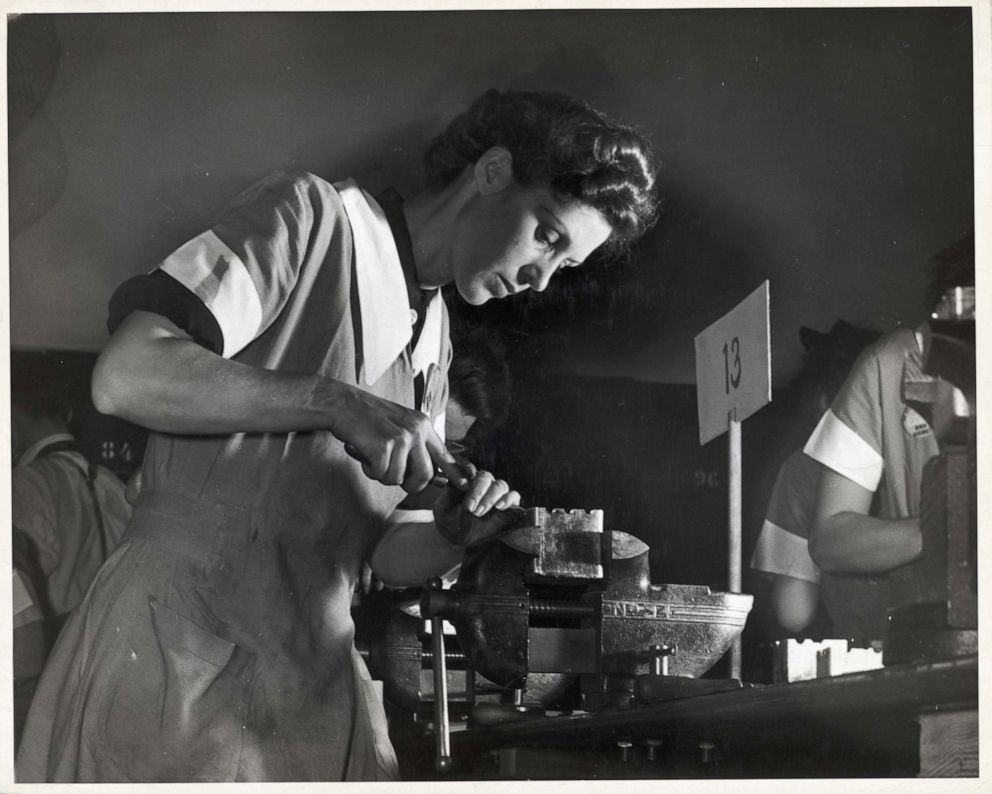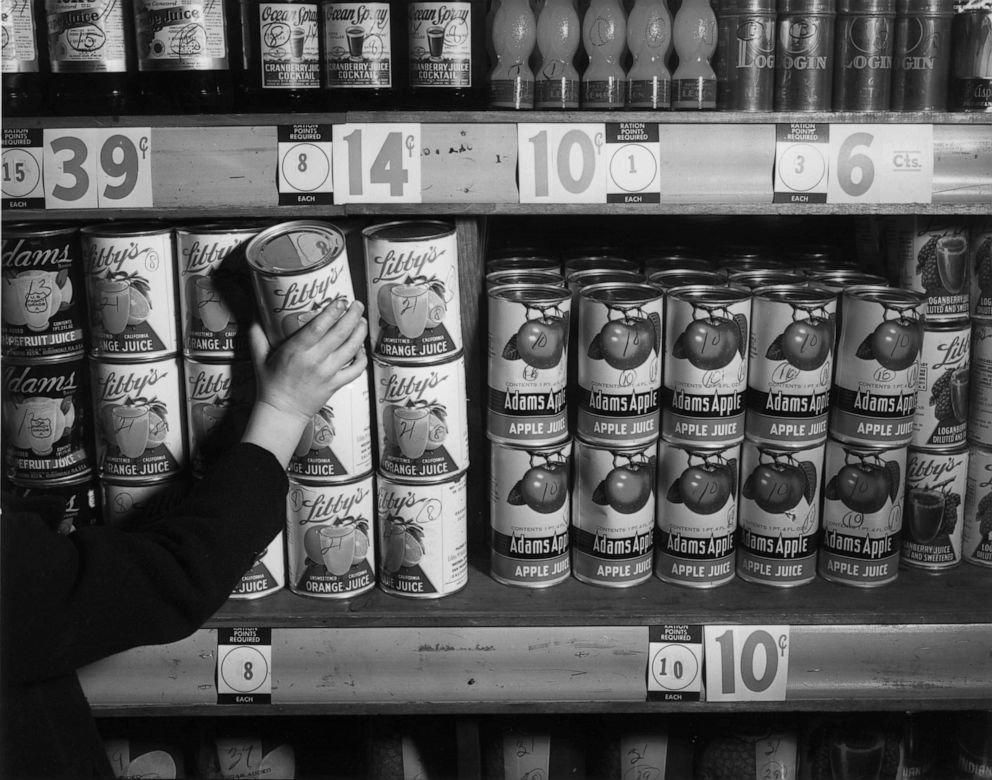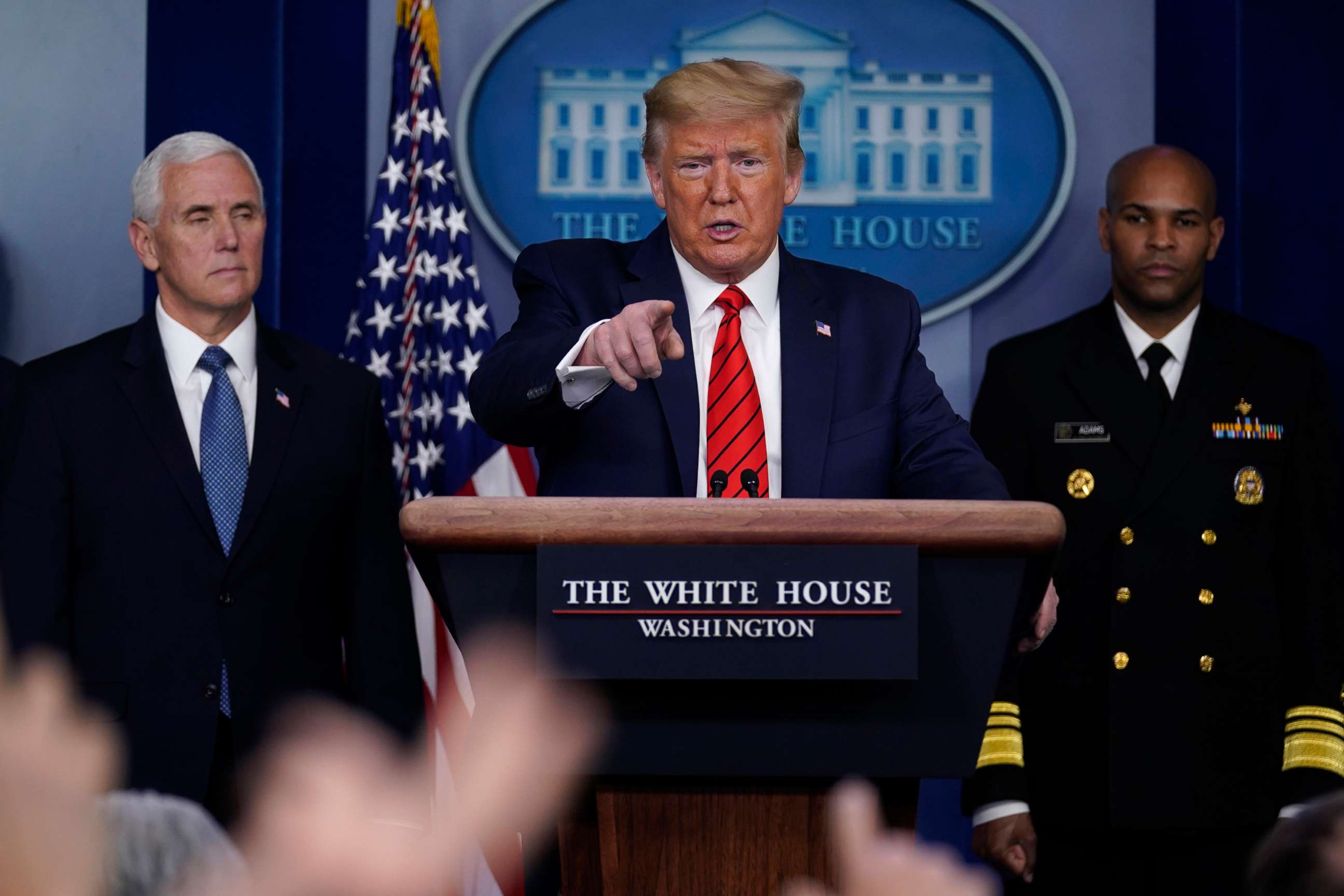Putting the nation on a 'wartime footing': What it meant for Americans in WWII
American lifestyles also changed drastically 80 years ago.
President Donald Trump has taken to calling the fight to stop the global pandemic a "war" against an “invisible enemy.”
Saying he views the crisis as a "wartime president," he's asked Americans to act as if the nation is on a "wartime footing."
“We must sacrifice together, because we are all in this together, and we will come through together,” he said Wednesday.
The country has answered the call before.

Americans' lifestyles changed, too, and drastically, during World War II.
Everything from food to rubber to fabric was rationed, and many Americans went to fight on the front lines.
People stayed home under curfews, with strict limits on gasoline and entertainment venues closed. Rubber used in car tires was needed for the war effort.
The real turning point came when the Japanese bombed Pearl Harbor in 1941.
“War had come calling, and so very suddenly the entire economy and society, the very fabric of American life, had to change, almost overnight,” Rob Citino, executive director of the Institute for the Study of War and Democracy at the National World War II Museum told ABC News. “Think about the government telling Americans in World War II you’re just going have to, for now, do with less so that [the fighters] can have more.”
Americans developed new recipes to accommodate the rationing of sugar, butter and meat. They grew their own vegetables in ‘Victory Gardens’ because produce was being sent to feed soldiers.
Communities organized scrap drives to provide metal needed to make planes and ships. People were were urged to repair clothes instead of buying new ones.

Citino said making do with less was not popular but, nevertheless, Americans banded together and changed most every aspect of their lives to contribute to the war effort.
Outside the home, the American economy also changed. With men in the armed forces, women went to work as in factories producing war materiel, producing the iconic image of Rosie the Riveter.
Constructions contractors that had once built roads started building naval bases.
Factories switched from making consumer goods, such as cars, to military equipment. Ford's Willow Run plant in Michigan famously turned out a B-24 Liberator bomber every 63 minutes.
"Frigidaire, the made then what they make now, refrigerators, but that wasn't going to be a big need for civilian or consumer refrigerators," Citino said. "And they went into pressing airplane parts, working in metal and the sorts of things that you do when you build a refrigerator. So, I think it's possible all along the line to see companies like Ford or like GM kind of retool."
Similar production shifts are happening in the current situation. The LVMH luxury conglomerate, which own Louis Vuitton and other brands used the supplies for perfume making, which included alcohol to produce hand sanitizer for the French government. Some distilleries are using high-proof alcohol to make hand sanitizer.
Other production changes could come. President Trump has said he might employ the Defense Production Act, enacted in the 1950s with lessons learned from the world wars. It gives the executive branch power to force private industry to produce goods the government needs, and impose wage a price controls, among other things.

Regardless of how American life changes in the wake of the coronavirus, Citino believes it could shape the nation's history, as it did in WW II.
"You never come through any events in history unscathed, whether it's good or bad, it leaves an imprint on you. You kind of carry it around with you the rest of your life or the rest of your history as a society." Citino said. "I have no doubt that this this crisis of 2020 is going be one that people are going to remember for a long time and will undoubtedly have permanent impact."




